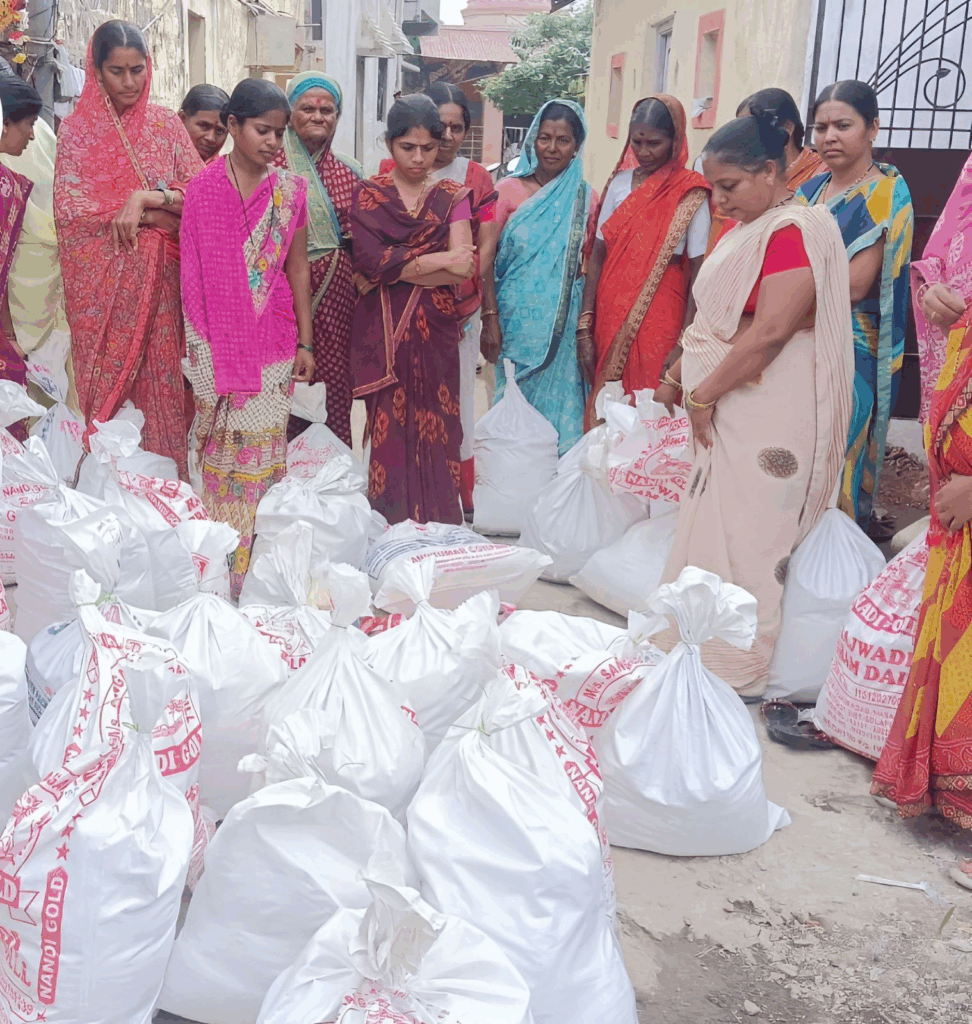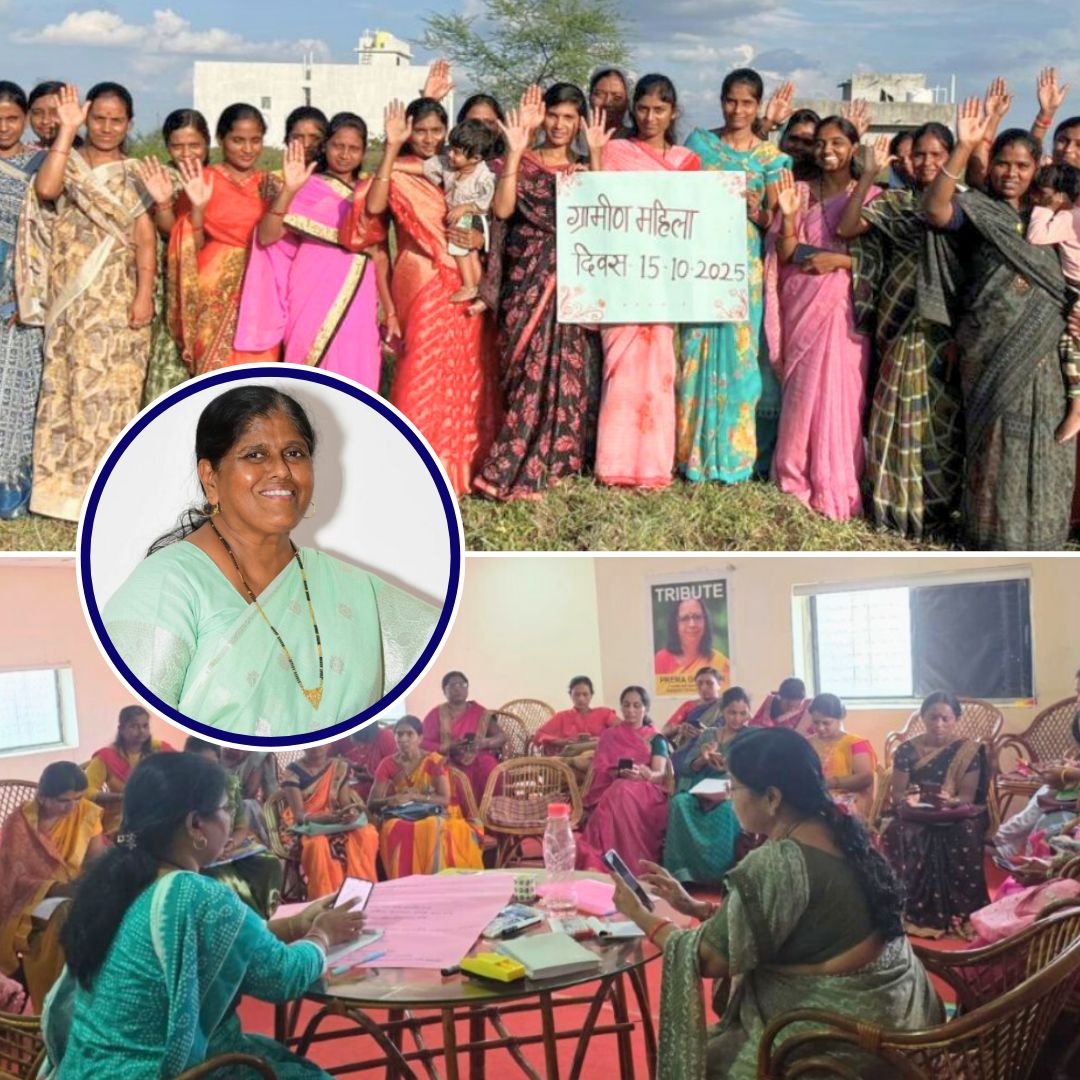Ms. Naseem Shaikh, Chief Executive Officer of Swayam Shikshan Prayog (SSP), embodies a legacy of over three decades dedicated to empowering rural women across India.
Since 1993, she has harnessed her vast experience to organize and uplift grassroots women, fostering their economic, social, and political growth. SSP’s mission under her leadership is transformative, enabling women to shift “from the margin to the mainstream.”
Today, SSP stands as a testament to her visionary leadership, having mobilized over 3.5 lakh women leaders in Maharashtra and other states, trained more than 1.65 lakh women farmers in climate-resilient agricultural methodologies, and supported thousands of women entrepreneurs who have significantly improved family incomes while enhancing community resilience to droughts and floods.
The organization’s work is deeply rooted in nurturing women’s leadership through innovative approaches like the Women-led Climate Resilient Farming (WCRF) model and the One Acre-Farming Model, which have brought sustainable and impactful change to rural regions plagued by environmental and socio-economic challenges.

Empowering Rural Women: From Margins to Mainstream
Ms. Naseem Shaikh’s leadership spans over three decades of dedication to empowering rural grassroots women, helping them transcend economic, social, and political marginalization. Since her early work in the aftermath of the 1993 Latur earthquake, where she mobilized 500 rural women as bridges between affected communities and government relief, Naseem laid the foundations for women-led governance and resilience models.
As CEO of SSP, she expanded this vision, empowering over 600,000 women across Maharashtra, Gujarat, Kerala, Karnataka, and Bihar to become entrepreneurs, farmers, and leaders in climate-resilient agriculture, health, water, and sanitation initiatives.
SSP’s core mission is to build women’s agency and leadership so they can move “from the margin to the mainstream.” This means not merely survival or participation but active decision-making and leadership roles in their communities. Naseem’s pioneering approach has positioned rural women as pivotal actors in local development, demonstrating their capacities as changemakers beyond traditional constraints.

Women-led Climate Resilient Farming and the One Acre Model
A central innovation of SSP is its Women-led Climate Resilient Farming (WCRF) model. This approach trains and enables women farmers to adopt diversified, multi-cropping farming practices suited to local climate challenges, ensuring food and nutrition security while boosting incomes.
The model encourages sustainable, organic practices that conserve water and natural resources, vital in drought-prone areas like Marathwada. One significant achievement is the adoption of the One Acre Farming Model, embraced by over 1.65 lakh women across Maharashtra and Kerala.
This model transforms small plots into highly productive farms by integrating indigenous seed varieties, mixed cropping, and eco-friendly techniques. It equips women to understand and control key farming decisions: what to grow, inputs to use, and when and where to sell produce.
SSP’s “Krishi Sakhis” (community resource persons) play a vital role, demonstrating these methods as practical experiments and training others, creating a ripple effect in villages.
These climate-resilient farming practices strengthen household food security, improve income stability, and enable farmers to withstand extreme weather events. Women adopting this model are at the forefront of agricultural innovation and climate adaptation, quietly combating climate change while advancing rural prosperity.

Women as Social Entrepreneurs and Community Leaders
As told to The Logical Indian, Naseem addressed, SSP fosters women’s entrepreneurship and leadership through skill-building, market access, and mentorship. Thousands of women have established businesses in sectors like tailoring, dairy, poultry, small shops, and eco-friendly products.
Women collectively form producer groups and enterprises, enhancing their bargaining power and market reach. SSP’s Women’s Initiative to Learn and Lead (WILL) empowers women to participate actively in local governance and community decision-making.
Women trained by SSP negotiate for improved public services, address social challenges, and lead disaster risk management efforts. This holistic approach integrates economic empowerment with social agency, boosting confidence and leadership capabilities at grassroots levels.
The entrepreneurial transformations have social and financial dimensions: women gain respect and influence in their families and communities while improving their incomes and financial stability.
SSP’s model includes training in financial literacy, marketing, and sustainable business practices, creating self-reliant women entrepreneurs who serve as role models.

Collaborative Ecosystem: Government, Private Sector, and Citizens
Swayam Shikshan Prayog’s success is rooted in strategic collaboration with multiple stakeholders. Partnerships with government agencies help link women to social schemes and extension services. The private sector supports capacity building and market linkage, while civil society organizations join hands for training and advocacy.
SSP ensures that women leaders engage with government officials, advocating for their rights and influencing policies on climate resilience and rural development. This multilateral support helps scale women-led initiatives and embeds women’s leadership in formal governance structures.
By building an enabling ecosystem including agro-tech partners, training institutions, and resource networks, SSP reduces barriers that typically impede rural women such as lack of land access, credit, and knowledge. The result is a sustainable framework where women entrepreneurs and farmers thrive within a supportive environment.
The Logical Indian’s Perspective
Ms. Shaikh envisions expanding SSP’s transformative work to empower millions more rural women nationally, scaling innovations in climate-resilient farming, entrepreneurship, and community leadership. She seeks to mainstream women’s leadership in development narratives and policies, ensuring gender equality and environmental sustainability go hand in hand.
From The Logical Indian’s perspective, SSP exemplifies a vital grassroots revolution that challenges top-down development models by placing marginalized women at the center of change. It highlights the power of self-education, experimentation, and community-driven innovation. SSP’s achievement proves that empowering rural women is pivotal for inclusive, resilient, and equitable rural development in India.
This movement is not only about climate adaptation or livelihood improvement but about fostering dignity, representation, and agency for women historically left out of mainstream progress. SSP’s decades-long impact story, under Naseem Shaikh’s stewardship, inspires hope and offers a replicable blueprint for women-led sustainable change across India.
If you’d like us to feature your story, please write to us at csr@5w1h.media











